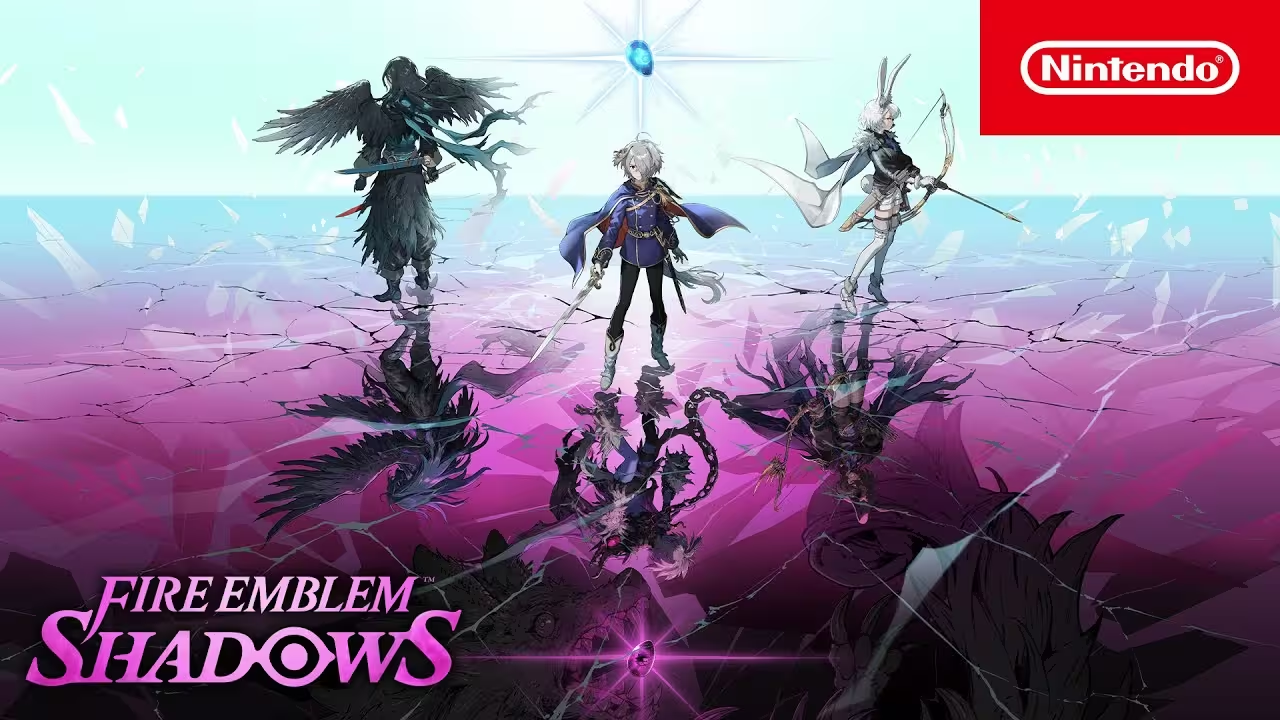The launch of a new Fire Emblem game is usually a big deal. So imagine my confusion when I opened the Nintendo Today app on September 24 and saw “Fire Emblem Shadows Available.”
There had just been a Nintendo Direct a few weeks earlier where Nintendo showed off Fire Emblem: Fortune’s Weave for the Switch 2 — not a single mention of Shadows.
Naturally, I thought it was a mistake. Maybe a typo for Shadow Dragon, the 2009 remake? Nope. Turns out, Fire Emblem Shadows is a brand-new mobile spin-off that quietly dropped on iOS and Android. It mixes “real-time strategy and social deduction.” On paper, that sounds wild. In practice… not so much.
A Fire Emblem Game That’s Barely Fire Emblem
Let’s get this out of the way — Fire Emblem Shadows barely feels like a Fire Emblem game. Instead of tactical grid-based battles, it’s basically an auto-battler where you only control one character from your three-person squad.
Your hero moves and attacks automatically. You just drag and drop spells, wait for cooldowns, and hope for the best. There’s a familiar weapon triangle system (fire beats nature, nature beats water, and so on), but positioning — the backbone of any Fire Emblem game — is gone.
Battles last maybe a minute. I’d throw three spells, heal someone once, and then it’s over. You can pull or push allies, swap places, or hit area spells that also damage friends — but none of it feels satisfying. The “strategy” part is mostly in name.
The Shadow Twist: Cool Concept, Weak Execution
The main hook of Fire Emblem Shadows is the “social deduction” twist.
Each match has three players — and one of them is secretly the Shadow, a traitor working to sabotage the others. After the first round, players vote on who they think the traitor is. Then the second round begins, where the outed Shadow reveals themselves and fights the others as a corrupted version with new powers.
It sounds like Among Us meets Fire Emblem, and I’ll admit — it’s a neat idea. But it just doesn’t click.
Because there are only three players, guessing the traitor is a coin flip. It’s way too easy to spot who’s dealing weird damage or acting off. Even if you’re clever as the Shadow, the system gives you away through battle logs that show who hit who. The game wants you to think and analyze, but also hands you the answers.
And because rounds are so short, there’s no time for any real deception. It’s like the game teases a mind game but ends before it starts.
Monetization That Undercuts Everything
Then there’s the free-to-play side — and this is where the game really loses me.
There’s no gacha system (thankfully), but you can still spend money on Gems and character medals to upgrade your roster faster. Some characters are locked behind a premium battle pass — currently Lyn from Fire Emblem: The Blazing Blade.
The problem? Paying players have a huge edge.
A level 4 player can crush a level 1 in seconds thanks to massive stat boosts. It’s like trying to play chess when your opponent starts with five queens.
Even if you guess the Shadow right, or play perfectly, power levels win out. It makes the entire “social deduction” layer pointless. When money decides the fight, what’s the point of pretending otherwise?
Presentation Carries the Fire Emblem Spirit
To give credit where it’s due — Fire Emblem Shadows looks great. The art direction is strong, the character designs pop, and the Shadow versions of characters are visually striking. Voice acting is solid too, and the story is told through classic Fire Emblem visual-novel scenes.
You unlock backstories and rapport with characters as you play, and there are two storylines — one for the Disciples of Light and another for the Shadows. It’s a cool setup, but grinding through the same dull battles to unlock bits of story feels like work, not play.
Ironically, the most fun part — playing as the Shadow — is locked behind repetition. You have to keep playing the less interesting “Light” side to progress the main story. It’s like the game punishes you for liking the cooler option.
Final Thoughts: A Shadow of Its Own Potential
There’s an interesting idea buried somewhere inside Fire Emblem Shadows — mixing strategy with social deduction could’ve been a fresh take on the franchise.
But the execution is off in every way that matters. The combat lacks depth, the deduction system has no teeth, and the monetization breaks the balance before you even start.
It’s hard to call Fire Emblem Shadows a real Fire Emblem game when it feels so disconnected from the core of what makes the series fun: tight tactics, tough choices, and smart positioning.
If you’re curious, it’s free — so you can try it out. But don’t expect the next big tactical masterpiece. This one’s a cool experiment that never finds its footing.
Verdict: 4/10 — A clever concept buried under shallow gameplay and pay-to-win design.

